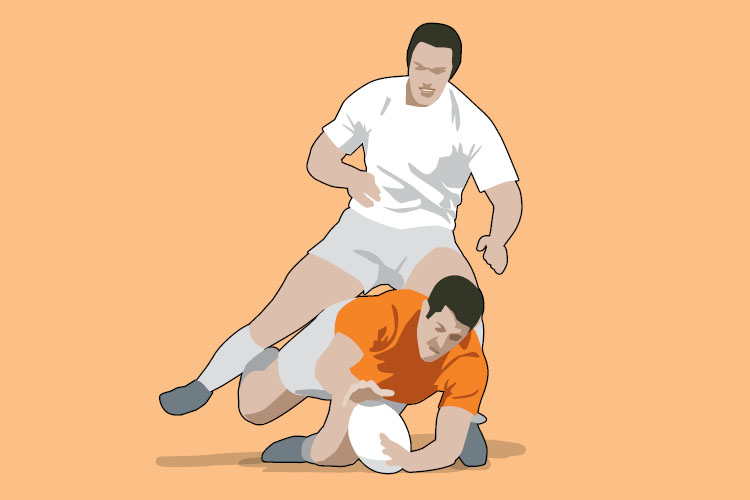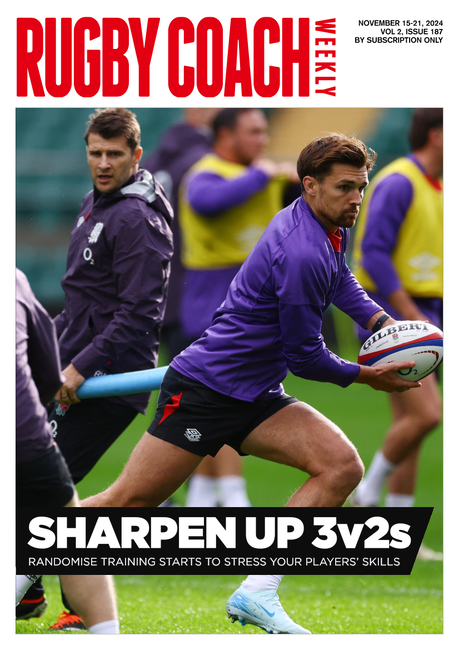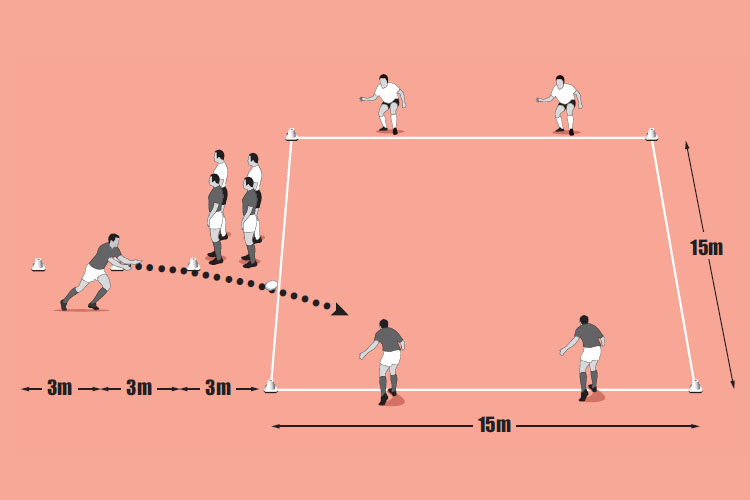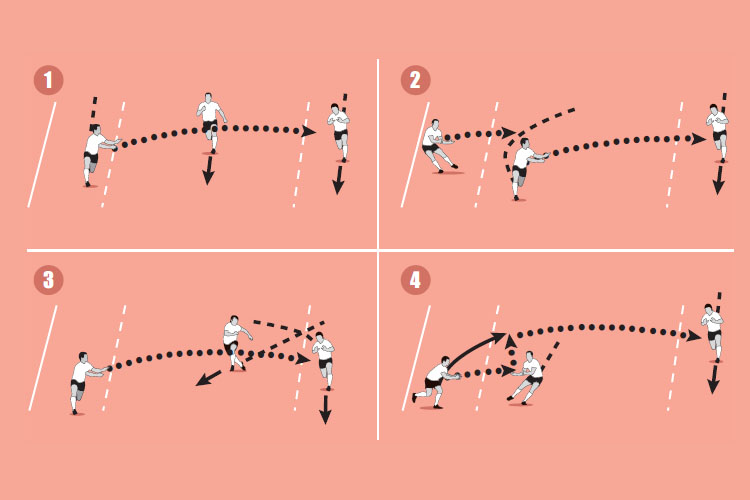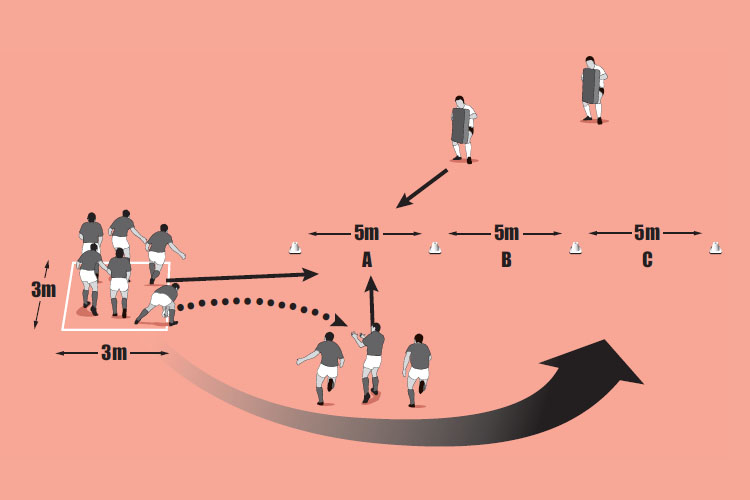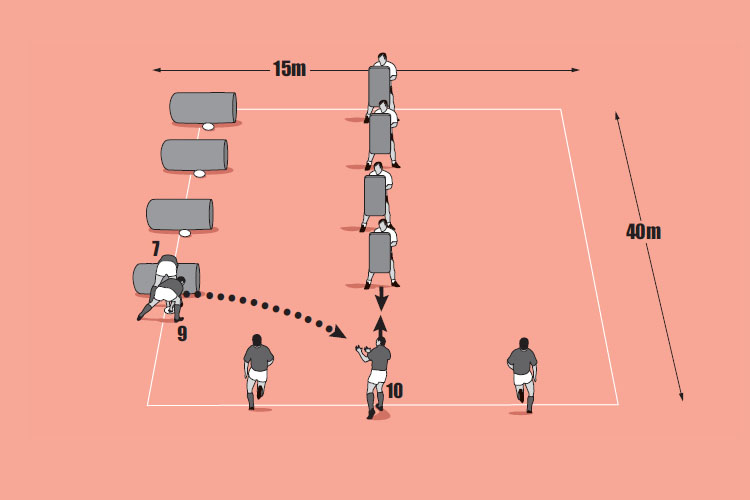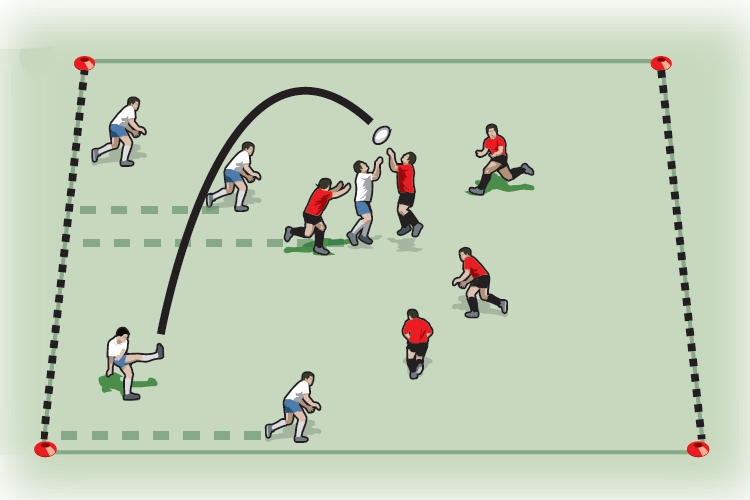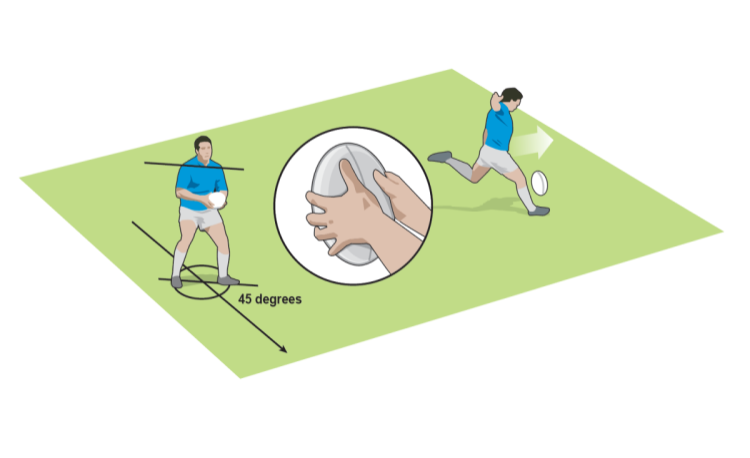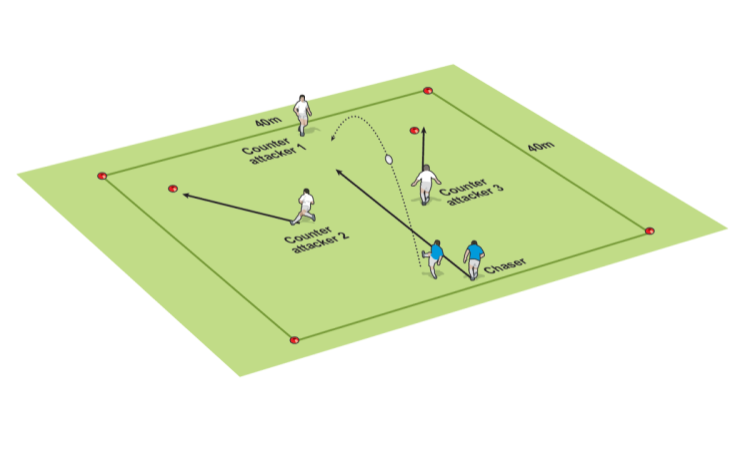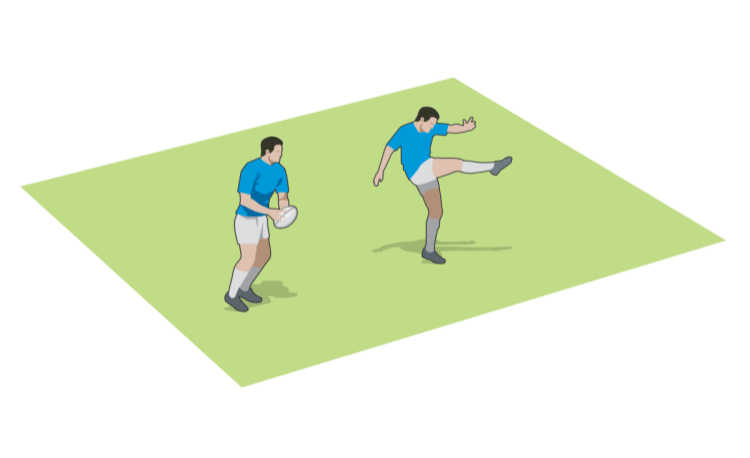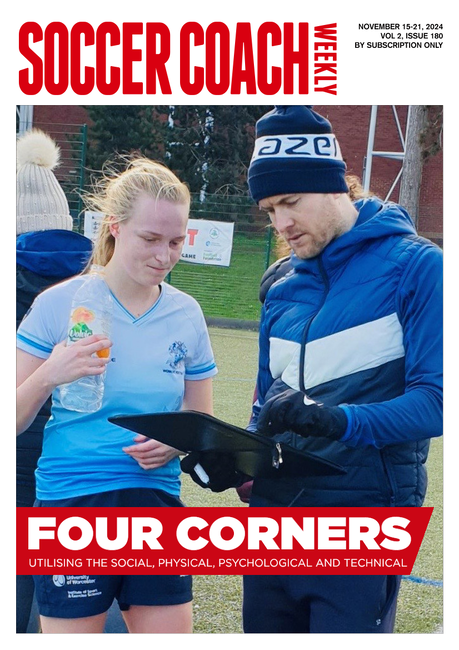Chasing the kick, no penalties
Any player may be in a position where he is chasing a kick and he finds either the opposition player jumping for the ball or sliding on to the ground to gather it. Here is a session to work on the best options to tackle the player and avoid conceding penalties.
Warm up time: 5
Session time: 6-9
Development time: 6-9
Game time: 15-20
Warm down time: 7
What to think about
A player who is in the air cannot be touched by another player. A chaser can either challenge in the air for the ball or wait until the player lands before tackling him. If he chooses the second option, he has to decide whether to knock the catcher backwards or tackle and turn him. A player who has dived on the ground cannot be landed on. However, the chaser can play the ball. Therefore, he does not have to wait for the player to get to his feet before he goes for the ball.set-up
- Chaser: know when you can tackle the ball carrier.
- Chaser: force the opposition player to rush his decision.
- Aim to tackle or compete for the ball to disrupt the opposition player and then try to win back the ball.
What you get your players to do
High ball: start the receiver in the middle of the box, with a chaser next to you. Throw the ball high into the box and the chaser has to either compete for the ball in the air or tackle the receiver to the ground. Ball on the ground: start the receiver about 3m from the edge of the box, with you and a chaser at the edge of the box. Roll the ball along the ground so the receiver has to run back, fall on the ball and recover. The chaser either goes for the ball or tackles the receiver once he is on his feet.Development
- Give the chaser five seconds to see if he can win the ball back legally.
- Add another player to each team who start next to you, and again give the chasing team five seconds after the ball is thrown to see if they can win the ball back.
- Kick instead of throwing the ball (or use a recognised kicker).
Related Files
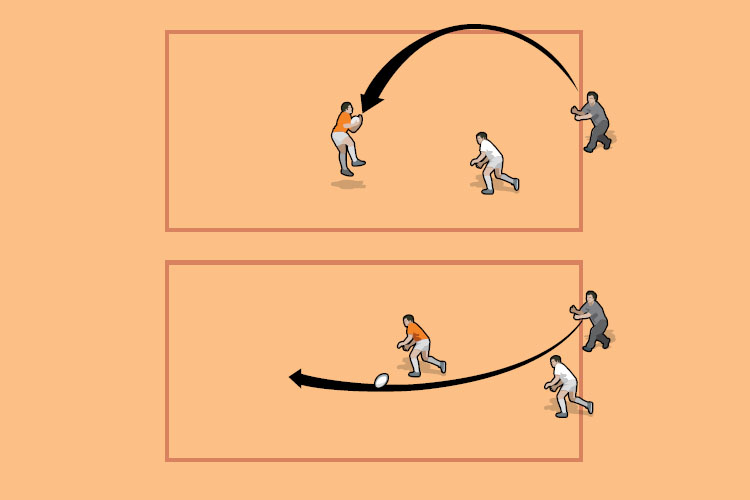
Game situation
Set up two “receivers” and three attackers as in the bottom picture. As the ball is kicked into the area, shout out which receiver can go for the ball. The other receiver can only enter the box once the ball is touched by his team mate. The other three players run into to try to win the ball back. Restart if the ball bounces out of the box.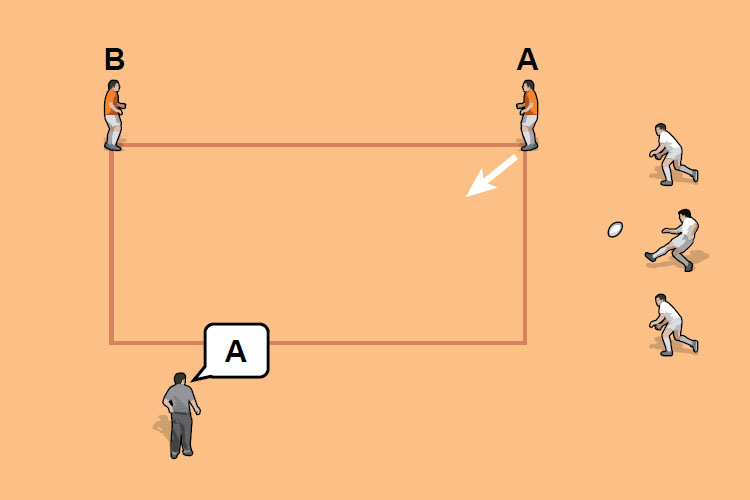
What to call out
- “Only tackle the ball carrier when he is on his feet”
- “Go for the ball at pace, but recognise when you can’t make it and slow down”
- “Can you turnover the ball or pressurise the receiver into giving away a penalty”
Newsletter Sign Up
Coaches Testimonials

Gerald Kearney, Downtown Las Vegas Soccer Club

Paul Butler, Florida, USA

Rick Shields, Springboro, USA

Tony Green, Pierrefonds Titans, Quebec, Canada
Subscribe Today
Be a more effective, more successful rugby coach
In a recent survey 89% of subscribers said Rugby Coach Weekly makes them more confident, 91% said Rugby Coach Weekly makes them a more effective coach and 93% said Rugby Coach Weekly makes them more inspired.
Get Weekly Inspiration
All the latest techniques and approaches
Rugby Coach Weekly offers proven and easy to use rugby drills, coaching sessions, practice plans, small-sided games, warm-ups, training tips and advice.
We've been at the cutting edge of rugby coaching since we launched in 2005, creating resources for the grassroots youth coach, following best practice from around the world and insights from the professional game.
